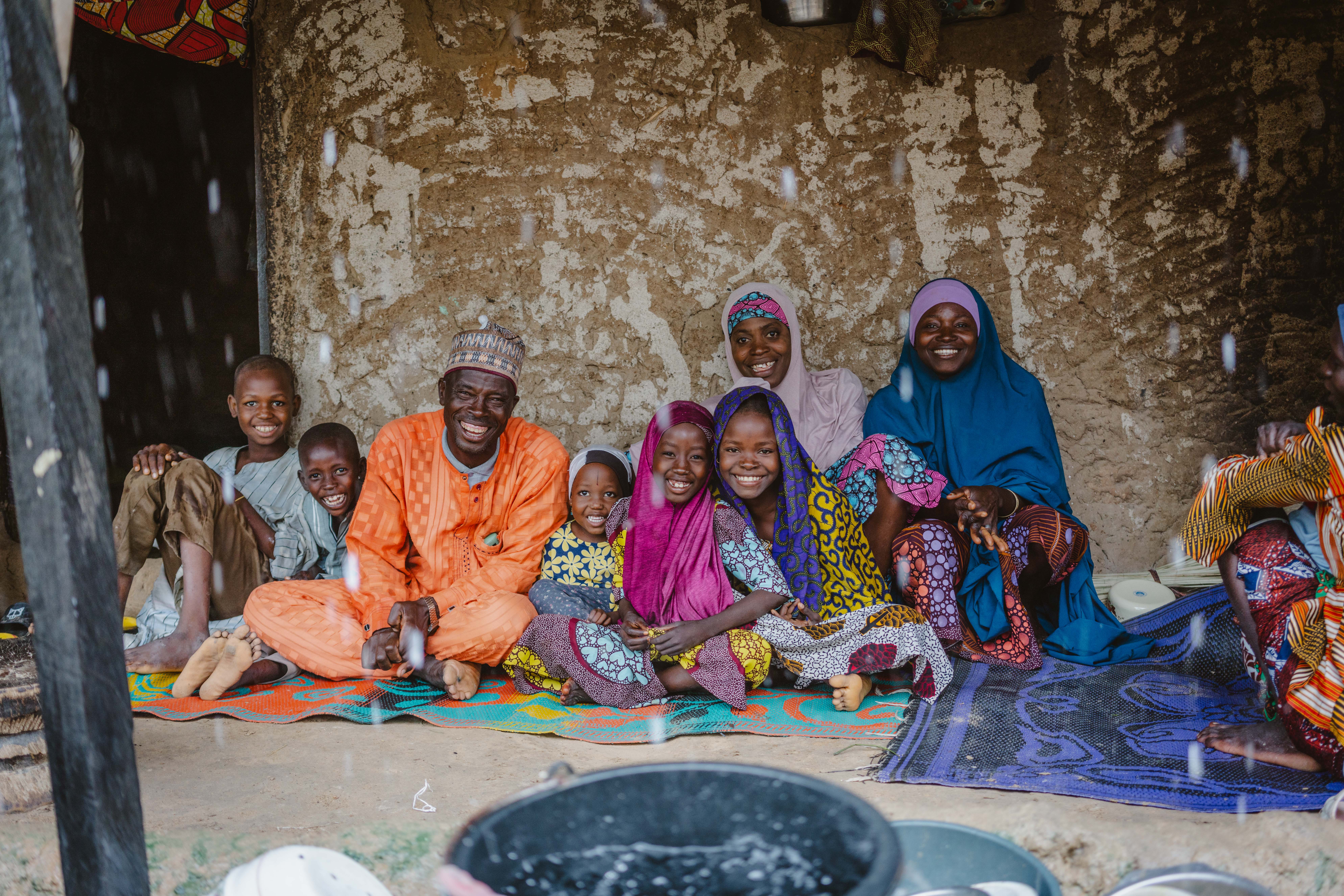Highlights
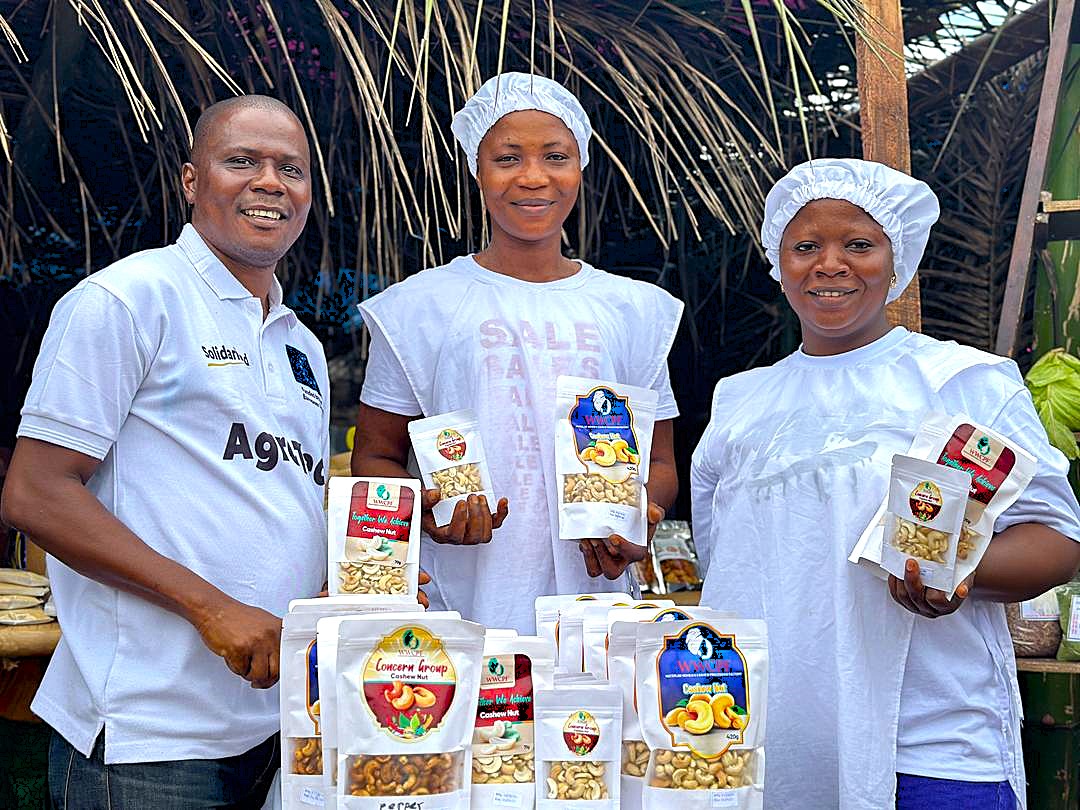
CASHEW
In West Africa, Solidaridad trained 1,427 stakeholders on land rights In Sierra Leone, a mini cashew processing factory commissioned in March 2024 now employs 420 workers, 82 percent of whom are women. Furthermore, 2,170 hectares of cashew plantations are now under sustainable management, integrating agroforestry principles to enhance soil health, biodiversity, and long-term productivity.
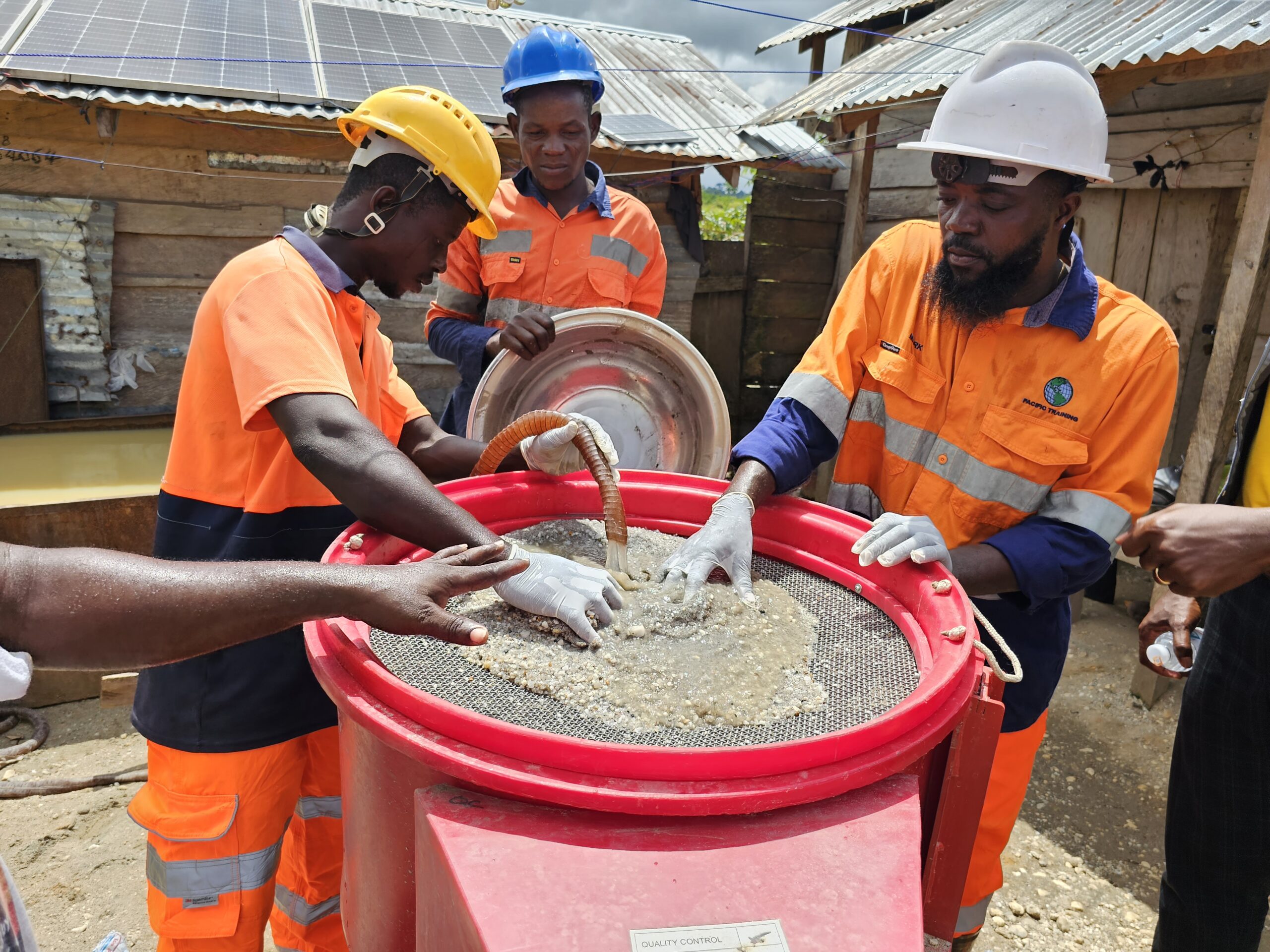
GOLD
In Ghana, six licensed artisanal and small-scale mining companies have reduced mercury usage in gold processing. Additionally, these mines have received support to meet the CRAFT Code requirements, promoting responsible and mercury-free gold production.
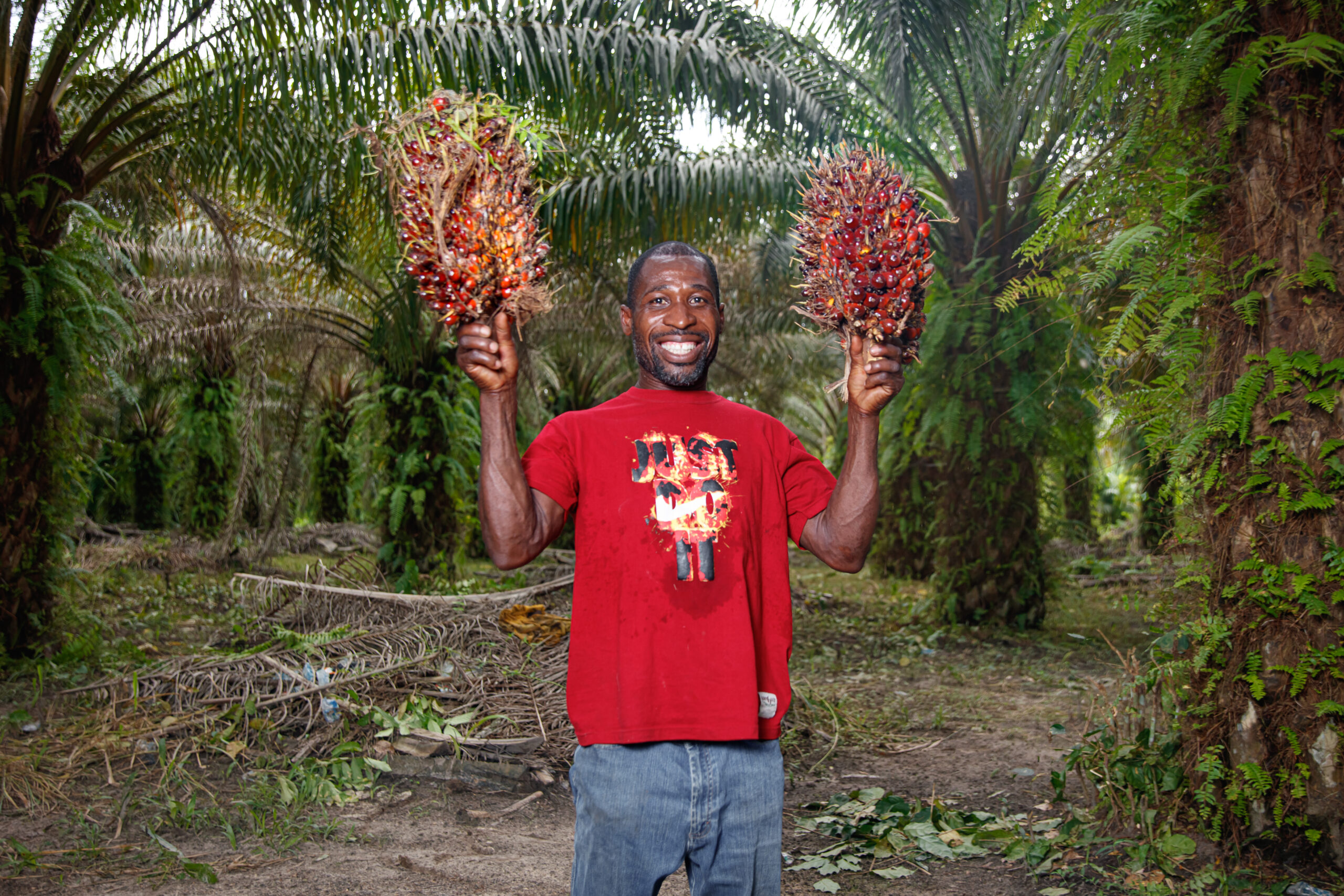
OIL PALM
Our support strengthened the Oil Palm Development Association to successfully advocate for key reforms, including a new seedling distribution policy to ensure access to quality seedlings and to increase productivity for oil farmers in Ghana.
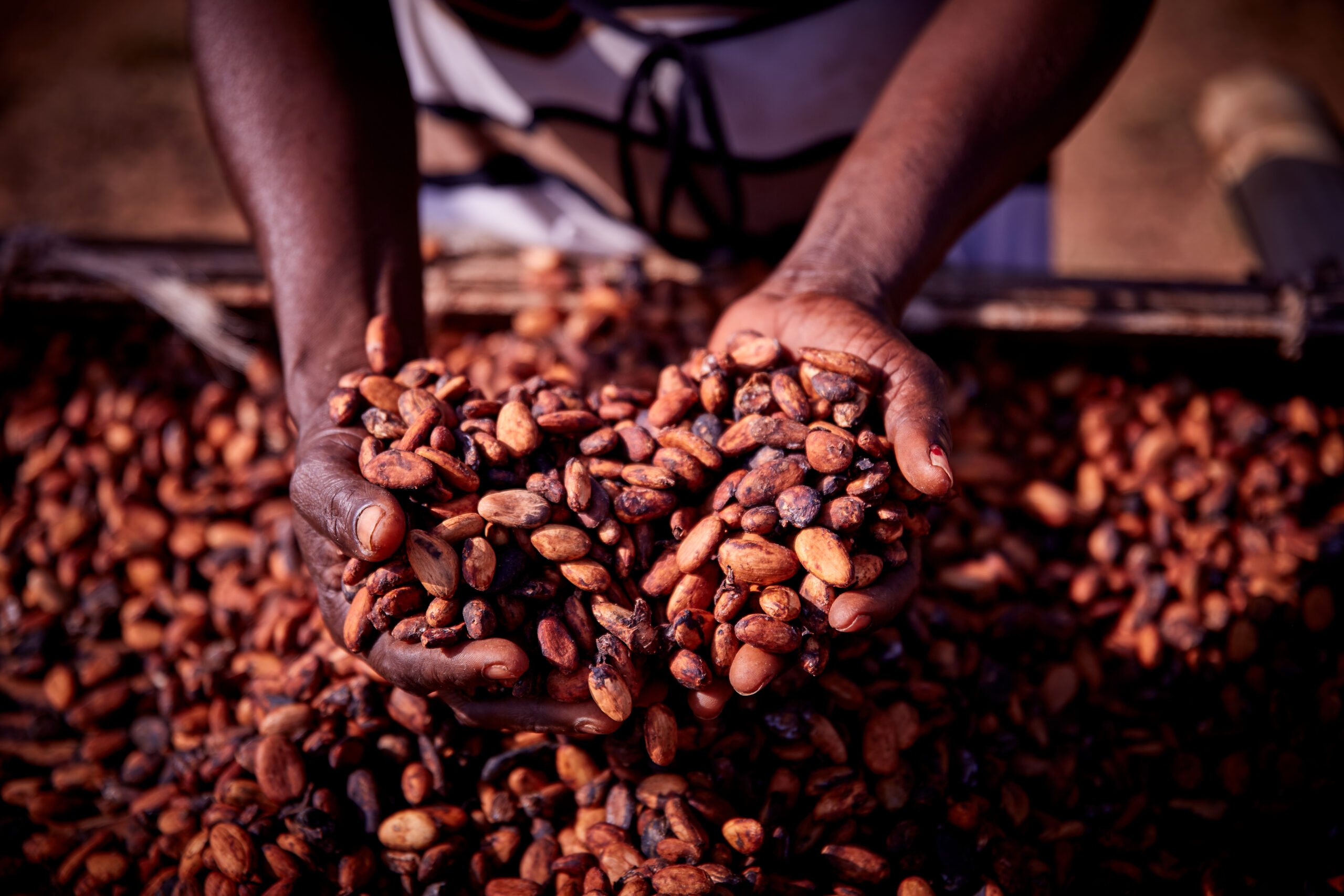
COCOA
An umbrella body comprising 340,000 cocoa farmers from 75 unions in Ghana has been formed to enhance farmers’ representation in decision-making and input on prices, government interventions, land rights, and living income. In Côte d’Ivoire, our remediation efforts in cocoa-growing communities led to the reinstatement of 65 children in school.
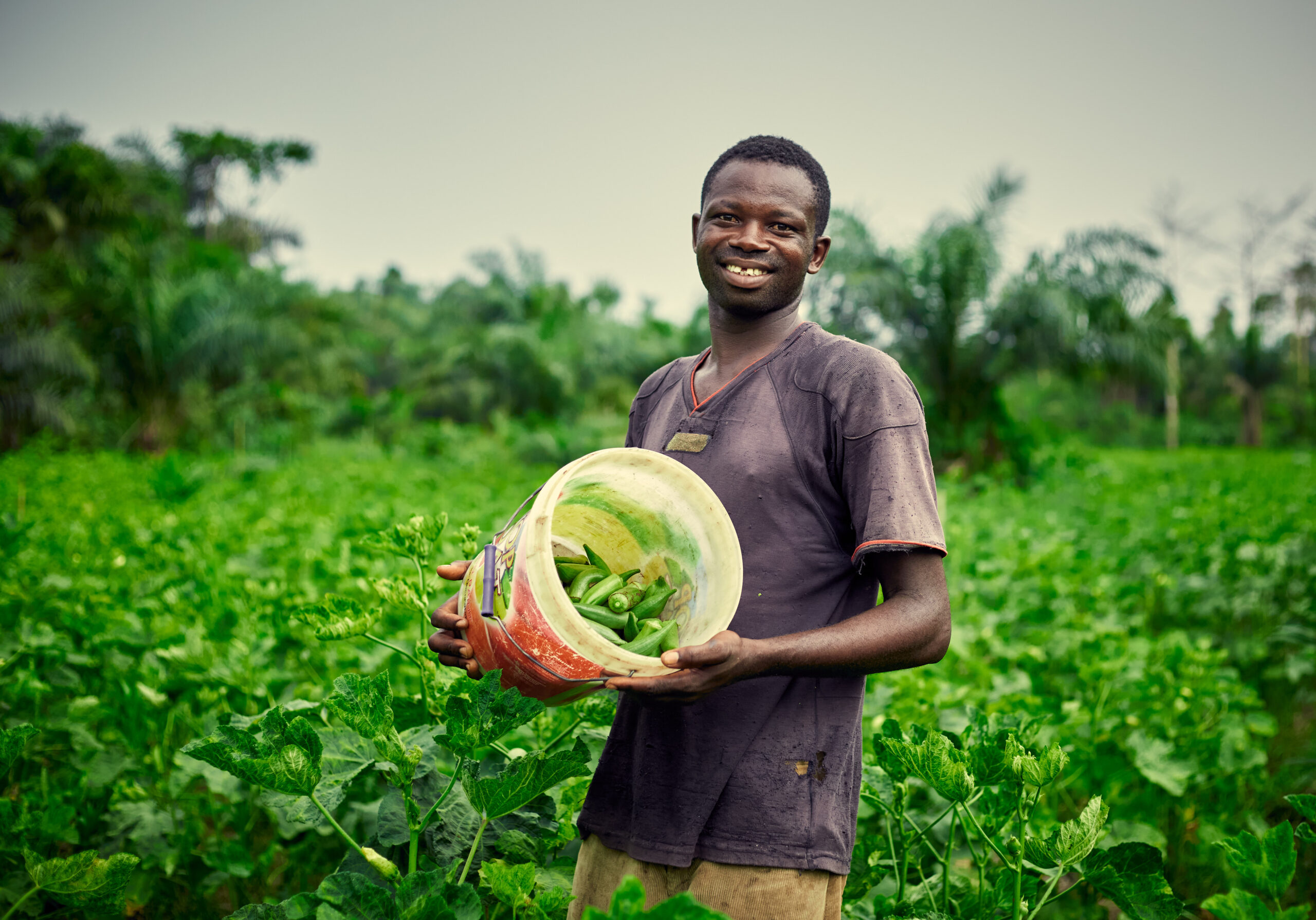
FOOD CROPS
We enhanced food security and improved productivity with 8,218 vegetable and food crop producers in Ghana, Nigeria, and Sierra Leone. In Nigeria, maize, potato, and vegetable yields increased by 135 percent, 151 percent, and 70 percent, respectively.
Results

156
CSO’s supported

34,895
farmers with income increase

93,054
hectares under sustainable management
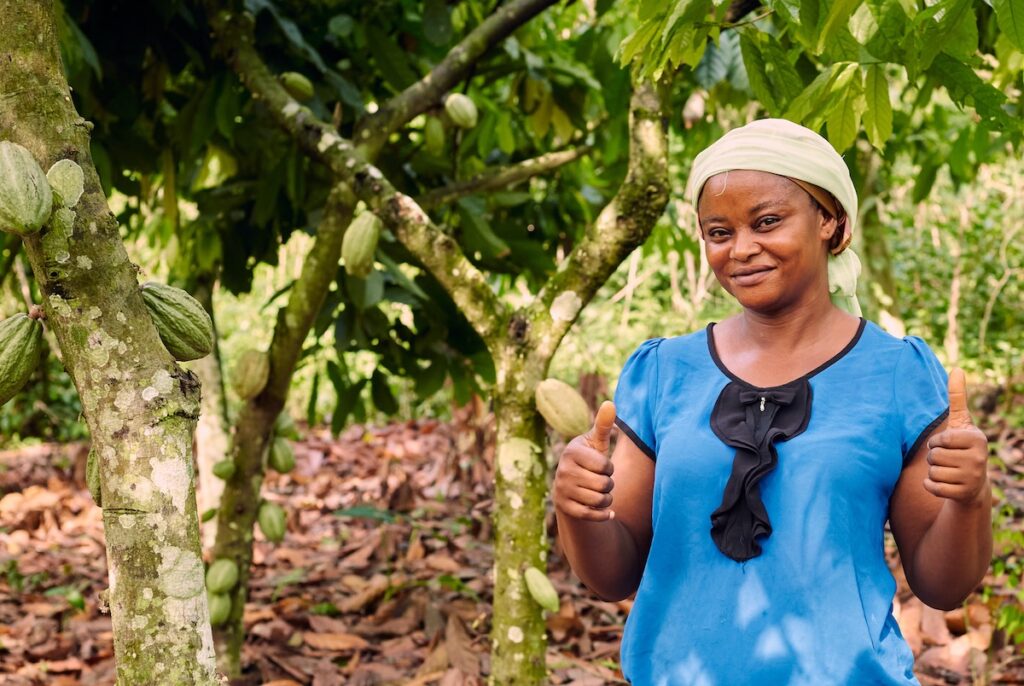
Driving Impact For Sustainable Livelihoods
In the past year, we remained committed to creating sustainable opportunities for smallholder farmers, miners, and agribusinesses. Through market access, responsible production, policy advocacy, and social inclusion, we continued to improve livelihoods and drive resilience across agricultural and mining communities.
Targeted interventions resulted in 93,053 hectares of land coming under sustainable management practices, benefiting 25,000 farmers who adopted agroforestry, climate-smart, and good agronomic practices. For example, farmers in Chad and Togo improved soil fertility and yields by applying sustainable cotton farming methods on 31,750 hectares.
In Sierra Leone, the adoption of labor standards by cocoa buyers improved health and safety conditions for 888 workers. In the mining sector, six licensed artisanal and small-scale mining companies reduced the use of mercury in gold processing. For instance, Joseph Ababio, owner of Agyapa Ye Mine Company, has reduced mercury usage by 60 percent since receiving the gold kacha (a mercury-free processing tool through the ‘Promoting Mercury-Free Project.’ He explains that the equipment enables efficient gold extraction while significantly cutting their reliance on mercury.
Overall, our interventions led to increased incomes for 34,895 producers through better market access, coaching, and sustainable practices across multiple countries and commodities. Notably, maize farmers in Ghana achieved a 144.8 percent income increase, while Nigerian vegetable farmers recorded yield gains of up to 151 percent. Talatu Idris, a tomato farmer in Nigeria, reported an increase in her income from 500,000 naira (280 euros) to 3.7 million naira (2,076 euros) following her training and access to improved tomato seeds under the Acting Now project.
The Village Savings and Loans Association scheme continued to provide financial literacy and access to finance for smallholder farmers and workers. In 2024, 23,248 individuals, predominantly women, gained knowledge in financial literacy, negotiated low-interest loans, and improved household resilience. In Chad, associations mobilized over €392,000 to finance income-generating activities, while in Ghana, members collectively accumulated €394,000 in savings and disbursed more than €142,000 in loans to members.
Beyond training and financial inclusion, community engagement played a pivotal role in scaling awareness of good practices. We conducted campaigns via radio and posters on responsible mercury use in five mining districts in Ghana to educate miners and communities on responsible mercury use and its dangers. Our gender advocacy efforts addressed some patriarchal norms in 284 cocoa communities. Mavis Baidoo, a cocoa farmer in Ayisikrom in the Eastern region of Ghana, has become the first woman in her community to enroll her daughter in the university.
In Nigeria, Solidaridad facilitated 30 community dialogues to challenge socio-cultural barriers. This led to a landmark decision by community leaders to lift all restrictions that had prevented women from owning land.
Solidaridad expanded access to essential agricultural services for 17,881 farmers in 2024 to drive growth and sustainability. In Sierra Leone, 2,705 farmers secured inputs, training, and market linkages, while 261 farmers in Côte d’Ivoire benefited from farm maintenance and phytosanitary support. In Chad, 100 producers accessed improved farm labor services through a Rural Service Centre, while in Ghana, business-to-business sessions facilitated the linkage of 3,641 farmers to essential farm services. 3,235 of these farmers confirmed improved access to farm services.
The Farmers’ Inputs Delivery and Investment Scheme (FIDIS) in Nigeria has transformed how farmers access quality inputs. Aliyu Sani, a vegetable farmer from Kano, who struggled to fully cultivate his four-hectare farm due to the high cost of seeds and inputs, is now realizing his farm’s full potential through access to quality seeds through the scheme. To sustain the impact of the investment scheme, 10 SMEs were trained in inclusive service delivery and linked to 21,446 farmers.
Three of our agro-input trained dealers in Sierra Leone recorded a 10 percent increase in revenue after engaging with 142 farming groups, representing 4,260 farmers. Four women-led agro-input centers that were established in 2024 are now serving 600 women farmers. A new cashew processing facility under construction in the Northern part of the country has already created 21 jobs and is expected to employ 122 people once fully operational.
In Ghana, a trained local fabricator successfully developed a mercury-free smelting forge, leading to the production of five additional forges. Currently, six small-scale mines are using this innovative technology, significantly reducing mercury usage and promoting safer, more sustainable mining practices.
In 2024, Solidaridad continued its pivotal role in shaping policies that promote fair pricing, sustainability, and inclusivity across the cocoa, oil palm, and cotton supply chains in West Africa.
In Ghana, the national executives of the Oil Palm Development Association of Ghana (OPDAG), with our support, successfully influenced policies on land tenure, fair pricing, and production. Their advocacy led to a review of the oil palm pricing mechanism and the development of a seedling distribution policy, ensuring fair pricing and increased productivity, respectively. The implementation of the pricing mechanism framework adopted by members of the Association ensured fair pricing and strengthened market negotiations for 425,000 smallholder oil palm farmers, artisanal processors, and mills.
In Sierra Leone, our collaboration with 20 civil society organizations contributed to the review and validation of the draft National Cocoa Policy, which has now been submitted to parliament. Meanwhile, in Côte d’Ivoire, we strengthened the capacity of 28 civil society organizations to participate in national cocoa policy discussions and advocate for sustainable regulations. We also enhanced collaboration between civil society organizations and cooperatives, leading to the establishment of five regional advocacy platforms to amplify voices for responsible governance in the cocoa sector.
To empower cocoa cooperatives in Ghana, Solidaridad, in partnership with Agriterra, facilitated the creation of the Ghana Cooperative Cocoa Farmers and Marketing Association. This national umbrella body represents over 340,000 farmers from 75 unions, giving them a stronger voice in shaping policies in the cocoa sector. Before its establishment, we worked with cooperatives to develop a Gender and Social Inclusion (GESI) policy, which led to six out of the 13 elected executives being women who have been active in the group’s leadership. Additionally, four unions from Ghana’s Eastern Region successfully advocated for protective measures for farmers affected by illegal mining, leading to the complete halt of operations of a prospecting mining company.
Across Côte d’Ivoire, over 16,000 individuals from farmer groups and civil society organizations were equipped to champion child rights, sustainable farming practices, and forest conservation, driving greater compliance with environmental and labor laws. Solidaridad also supported the formation of the Plateforme Ivoirienne pour le Cacao Durable (PICD), strengthening 28 civil society organizations and 78 farmer groups to advocate for sustainable cocoa policies.
To bridge the gap between small-scale producers and fair, sustainable markets, Solidaridad worked to create opportunities that drive better incomes and long-term economic resilience. In Sierra Leone, we facilitated market access for 1,794 farmers, enabling them to sell over 248,920 kg of rice, cassava, and groundnuts to local consumers.
Through our collaboration with the Produce Marketing Board of Sierra Leone, we championed the adoption of sustainable sourcing guidelines, securing formal market opportunities for small-scale farmers who had long been excluded from fair pricing structures.
In Ghana, six mines were supported to meet the CRAFT Code requirements, promoting responsible and mercury-free gold production. This compliance positions the miners as credible suppliers on the international gold markets. In Nigeria, Solidaridad facilitated the offtake of 25 tonnes of sustainably produced palm oil from mills through strengthened market linkages. Additionally, we connected 1,000 farmers to regional buyers by establishing five aggregation centers to integrate them into formal market systems.
Change that Matters Stories
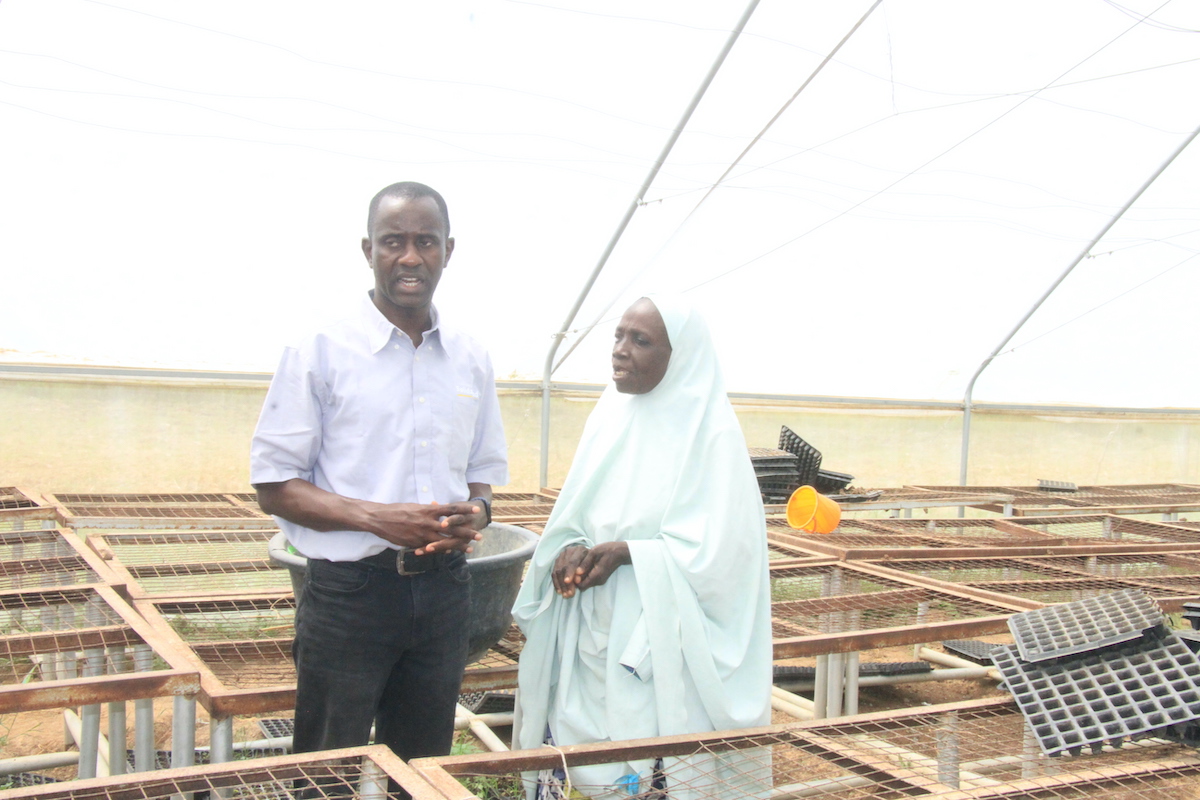
TALATU’S DETERMINATION
Talatu Idris, a Nigerian farmer who cultivates tomatoes, has overcome adversity to secure a brighter future for her family. Through hard work and innovative techniques, she has increased her income fivefold. This achievement was in part due to the Acting Now project, where she gained access to essential agricultural knowledge and resources.
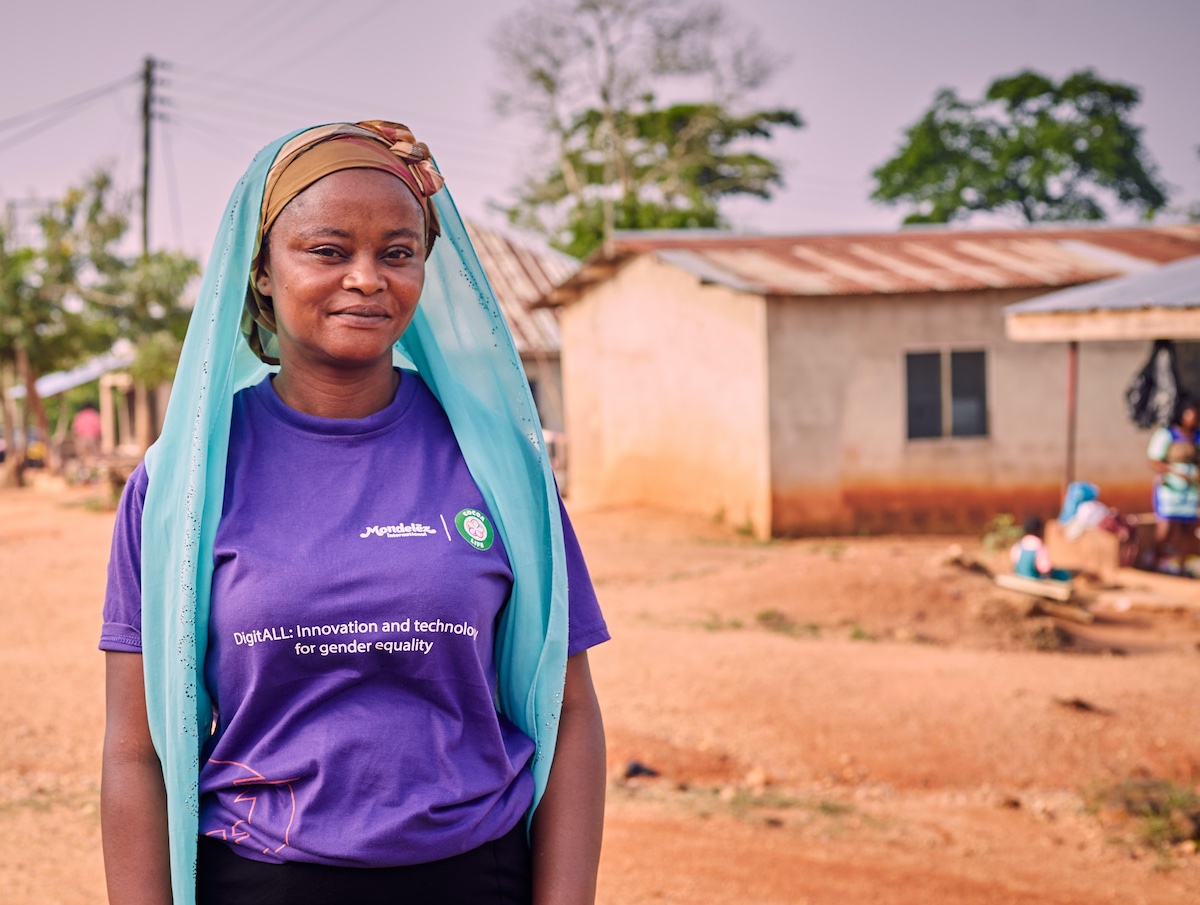
DEFYING TRADITION, LEADING CHANGE
In Ayisikrom, a community in Ghana where patriarchal traditions are entrenched, a gradual transformation is underway. Thirty-nine-year-old Mavis Baidoo, a mother of four and a cocoa farmer, has defied societal norms to become a trailblazer for women who are embracing social change.
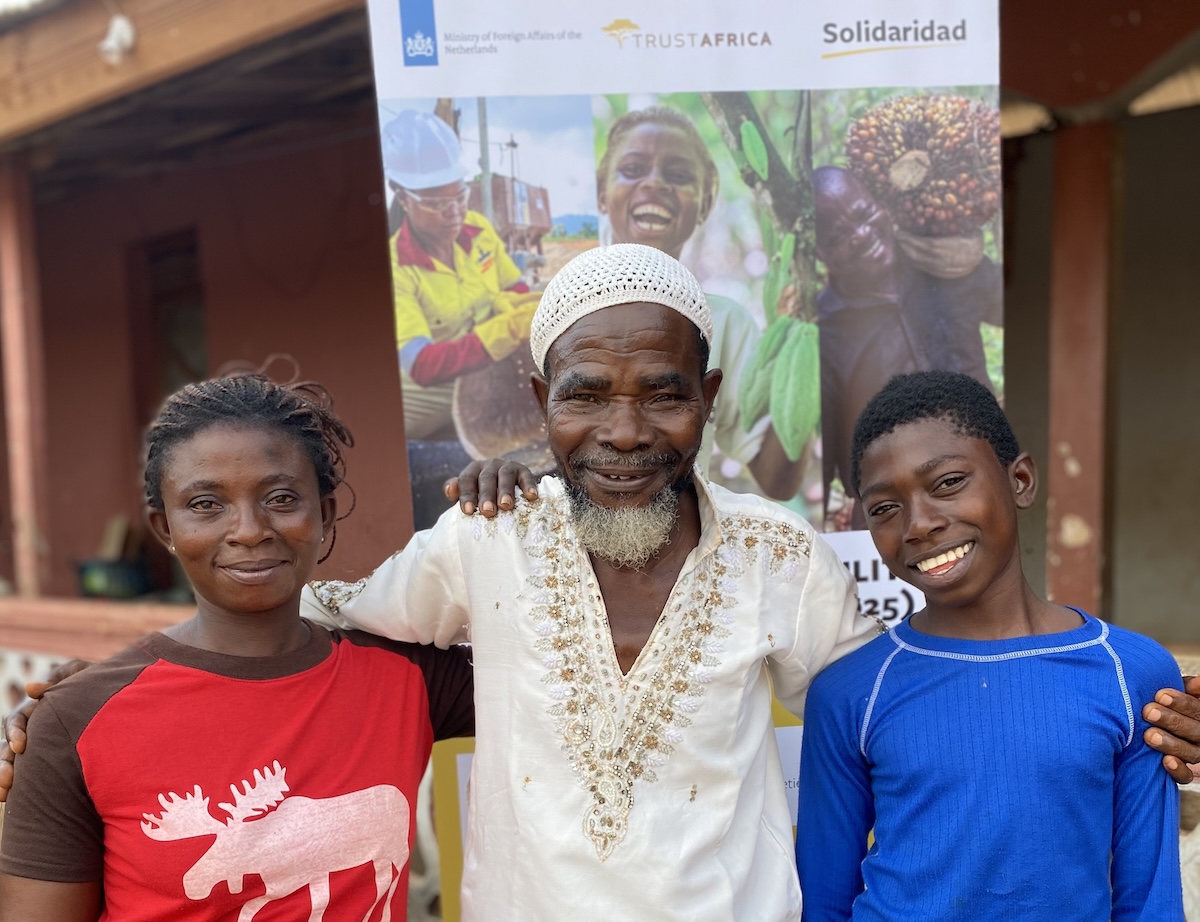
A FARMER’S JOURNEY AGAINST CHILD LABOR
For five years, Musah Kalamdulai, a cocoa farmer and tailor from the Bremang Nwomaso community in Ghana’s Central region, believed that having his children work on the farm was just part of their contribution to the family farming business. Unaware of the risks to his children’s health and education, they often engaged in spraying agrochemicals, weeding large portions of farmland, pruning or carrying heavy loads.
Sustainability Solutions
ENHANCING AGRICULTURAL SOLUTIONS THROUGH DIGITAL INNOVATION
In 2024, we provided smallholder farmers across West Africa with real-time agricultural information, market insights, and business skills through digital tools. Over 35,000 farmers received timely and practical digital guidance to improve productivity, resilience, and profitability while complementing in-person training and extension services.

Through our innovative Harvest Alert platform, 5,831 smallholder oil palm farmers now receive up-to-date pricing information sourced from Ghana’s Tree Crops Development Authority (TCDA). This allows farmers to make informed decisions, negotiate better prices, and avoid exploitation by middlemen. By increasing farmers’ bargaining power, the platform contributes to a more equitable and efficient value chain for oil palm producers.
Using Interactive Voice Response (IVR) technology, we reached 29,220 farmers across Ghana with voice messages in English and selected local languages. These messages covered best practices in maize, rice, gold, and cocoa production, as well as guidance on climate-smart agriculture, responsible mining, and gender inclusion. The use of the IVR technology ensured that even farmers with limited literacy could access practical, easy-to-understand information to enhance their farming and business operations.
The Urban Farming Initiative gained momentum, we developed a WhatsApp chatbot to provide instant, tailored farming and gardening tips. The easy-to-use digital tool offers farmers and home gardeners expert guidance on crop cultivation, soil management, pest control, and sustainable farming techniques. This made agricultural knowledge more accessible to urban farmers.
Across our programmes, innovation has proven to be essential for scaling impact. The integration of digital tools for our training interventions, such as the use of Interactive Voice Response (IVR) for extension services and video testimonials for peer learning, expedited knowledge transfer and ensured that farmers received relatable, timely, and relevant information on good practices.
Local stakeholders are key to project success. The involvement of traditional authorities to align activities in projects helps minimize misunderstandings and reduce and improve community buy-in of projects. The integration of Community Action Plans into district development frameworks ensured long-term local government support and the sustainability of community-based projects.
Organization & governance
Strengthening Systems
In 2024, Solidaridad West Africa reinforced organizational efficiency, staff well-being, and strategic communication to drive impact. From hiring diverse talent to enhancing brand visibility and implementing data-driven project management, our efforts ensured stronger systems, greater accountability, and increased recognition for our contributions to sustainable development across the region.
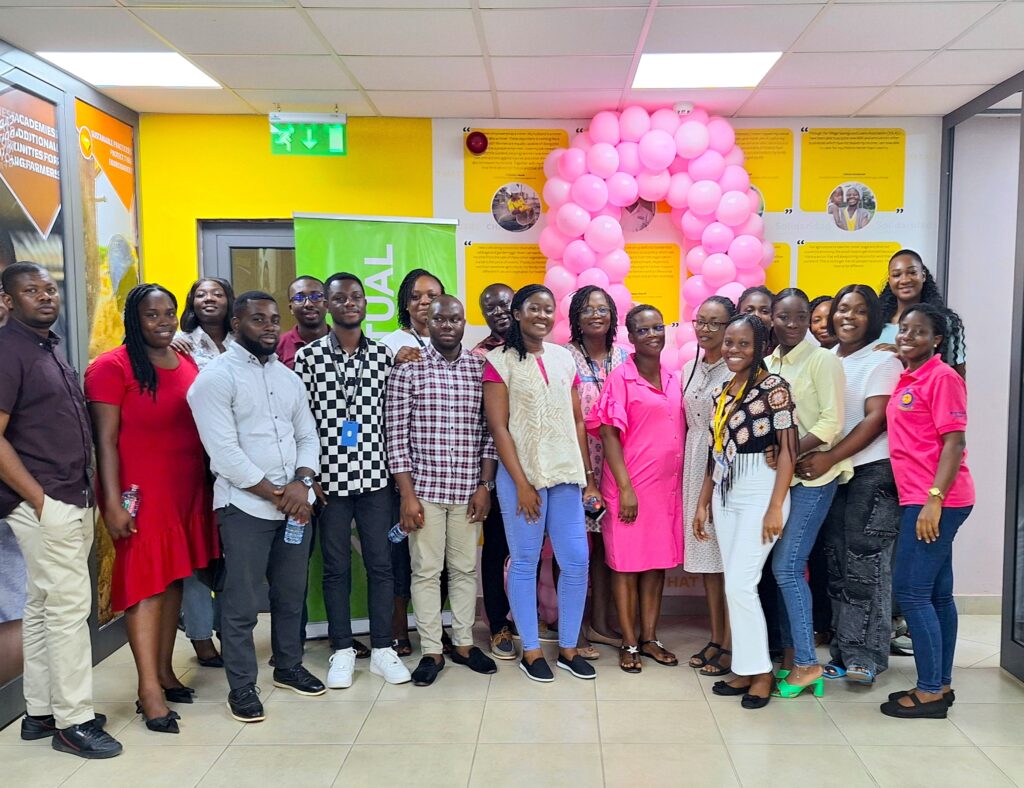
Solidaridad West Africa strengthened workplace policies and staff well-being through a series of initiatives in 2024.
In 2024, Solidaridad West Africa counted 141 employees. We hired and onboarded 16 new staff, comprising 8 women and 8 men with the right skills across various disciplines for the respective countries. The recruitment process prioritized the hiring of female candidates, contributing to greater female representation.
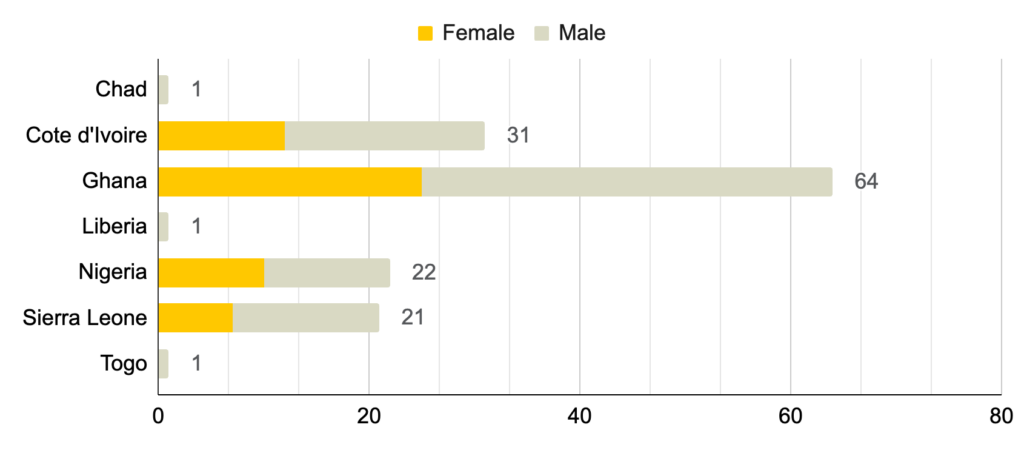
Recognizing the importance of work-life balance for employees, we organized training sessions. including stress and mental health resources. Staff actively participated and improved their knowledge of how to manage work-related stress.
In 2024, West Africa focused on strategic storytelling, brand visibility, media engagement, and digital content production to enhance its reach and influence across the region. As part of these efforts, we executed regional and project-specific campaigns, including International Women’s Day, Rural Women’s Day, and the launching of an apex cocoa cooperative body. These campaigns amplified our work and reinforced Solidaridad’s role in promoting inclusive development, sustainability, and farmer empowerment.
During the year, Solidaridad was recognized for its impactful contributions to sustainable agriculture and rural development across West Africa. We received an award in Cross River State, Nigeria, for our role in advancing sustainable food production. In Sierra Leone, our commitment to empowering rural women in agriculture was honored with another prestigious award. Additionally, we received special recognition in Ghana for our contributions to the growth and development of the coconut sector.
In 2024, we intensified our digital and social media efforts, leading to significant growth in online engagement. Our followership on LinkedIn, for instance, grew from 4,200 to 7,283 in 2024.
Solidaridad’s corporate visibility was enhanced through the exhibition of Solidaridad’s work and participation in key stakeholder events across the region. Notably, we took part in the World Food Day celebration in Sierra Leone, showcasing the Power of Article 6 in Ghana by the Foundation for Climate Protection and Carbon Offset, as well as other strategic events in Côte d’Ivoire and Nigeria.
Solidaridad West Africa organized a stakeholder workshop to advocate for the formation of an apex cooperative body in the cocoa sector, reinforcing our commitment to amplifying farmers’ voices. Another key event was the inauguration of the National Partners Forum, a high-level stakeholder platform aimed at addressing child labor in Ghana’s mining sector. These events brought together more than 500 participants and reached over 15,000 on social media channels.
During the review year, the REC strengthened its utilization of data for adaptive project management. The region contributed extensively to the development of the Global PMEL paper on technical assistance. Using the Mondelez Cocoa Life program implemented in Ghana from 2019 to 2024 as a case study, we demonstrated how Solidaridad’s blend of farmer and community-focused interventions empowered cocoa farming communities to identify, prioritize, and address their business and community development needs. We have digitized our child protection work by implementing a ‘digital data collection chain’ from community diagnosis to the establishment of child protection committees and tracking child labor remediation efforts.
Results Quality Audit was implemented for seven projects. The audit revealed key lessons for improved programme delivery. These include the importance of integrating project participant feedback into project implementation and the need for continuous verification of programme activities conducted by external service providers to enhance the quality of our results.
A total of 21 evaluations were conducted across various countries in 2024. The evaluations included baseline surveys, midterms, end lines, rapid research, needs assessment, and outcome surveys. The various research focused on sectors, including cocoa, poultry, and oil palm and covered several themes, including financial inclusion, child labor, sustainable landscape management, agricultural productivity, market access, and gender inequalities. Quantitative, qualitative, and participatory approaches were employed to engage local communities and stakeholders. Key recommendations from the evaluations highlight the need for deeper entrepreneurial capacity building, improved access to inputs and services, strengthened value chain linkages, and continuous delivery of financial inclusion capacities and innovations into community savings groups.
Finance
Solidaridad West Africa generated a total income of 11.55 million euros in 2024, meeting its expected target by 98% despite a 12.3% reduction compared to the 13.1 million euros generated in 2023. More than half (55.6%) of the income generated (6.4 million euros) was from their own fundraising efforts with private and public actors who continue to invest in West Africa.
We also recorded a total income of 5.1 million euros from other Solidaridad entities, slightly lower (4.8%) compared to the 2023 figure of 5.4m euros. This is mainly due to the completion of some projects funded through the Solidaridad entities.
Total expenditure recorded in 2024 was 11.55 million euros. The analysis shows a 12.6% reduction in expenditure compared to the 13.2 million euros reported in 2023. Out of the reported expenditure in 2024, employee costs constitute 24%, partner costs 22% and programme implementation costs 54%. The year ended with a surplus of 5000 euros higher than the previous year.
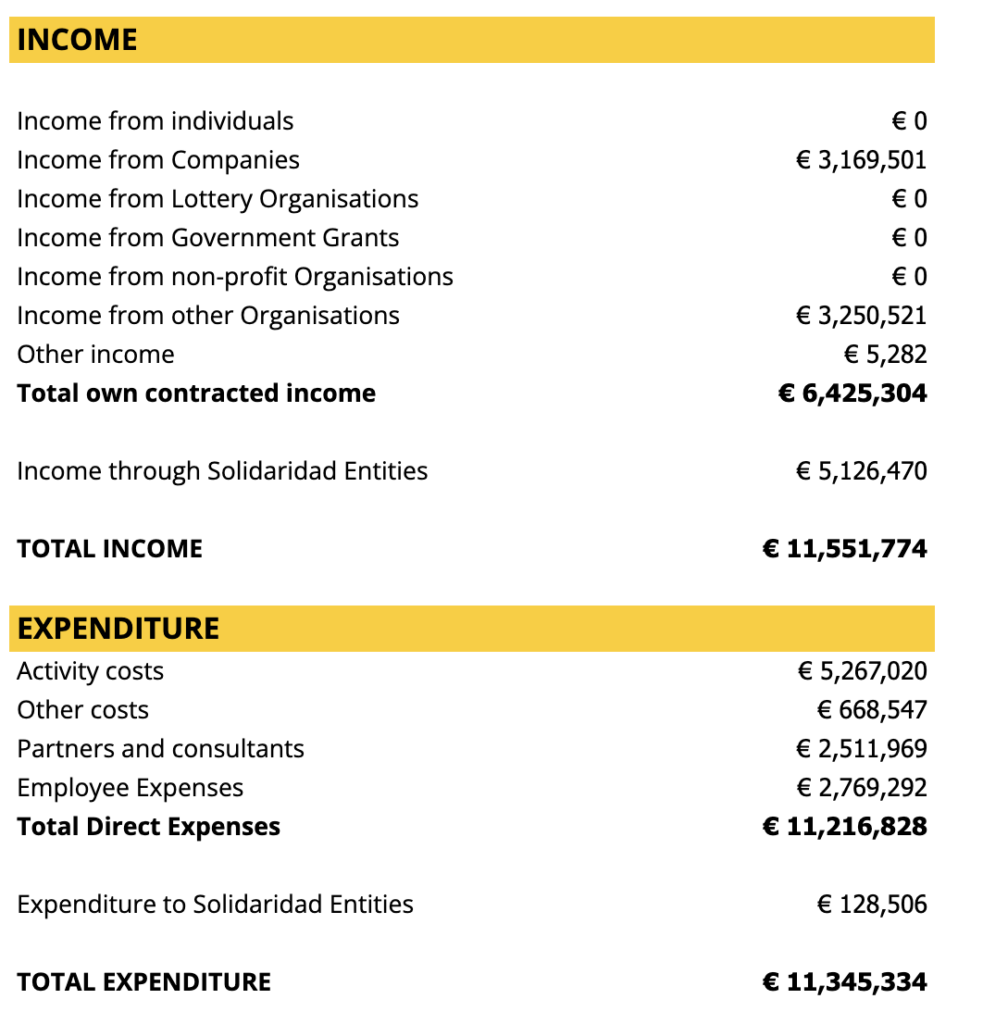
All information above is based on the unaudited figures over 2024. The official audited financial statements over 2024 will be uploaded here as soon as they are available.

